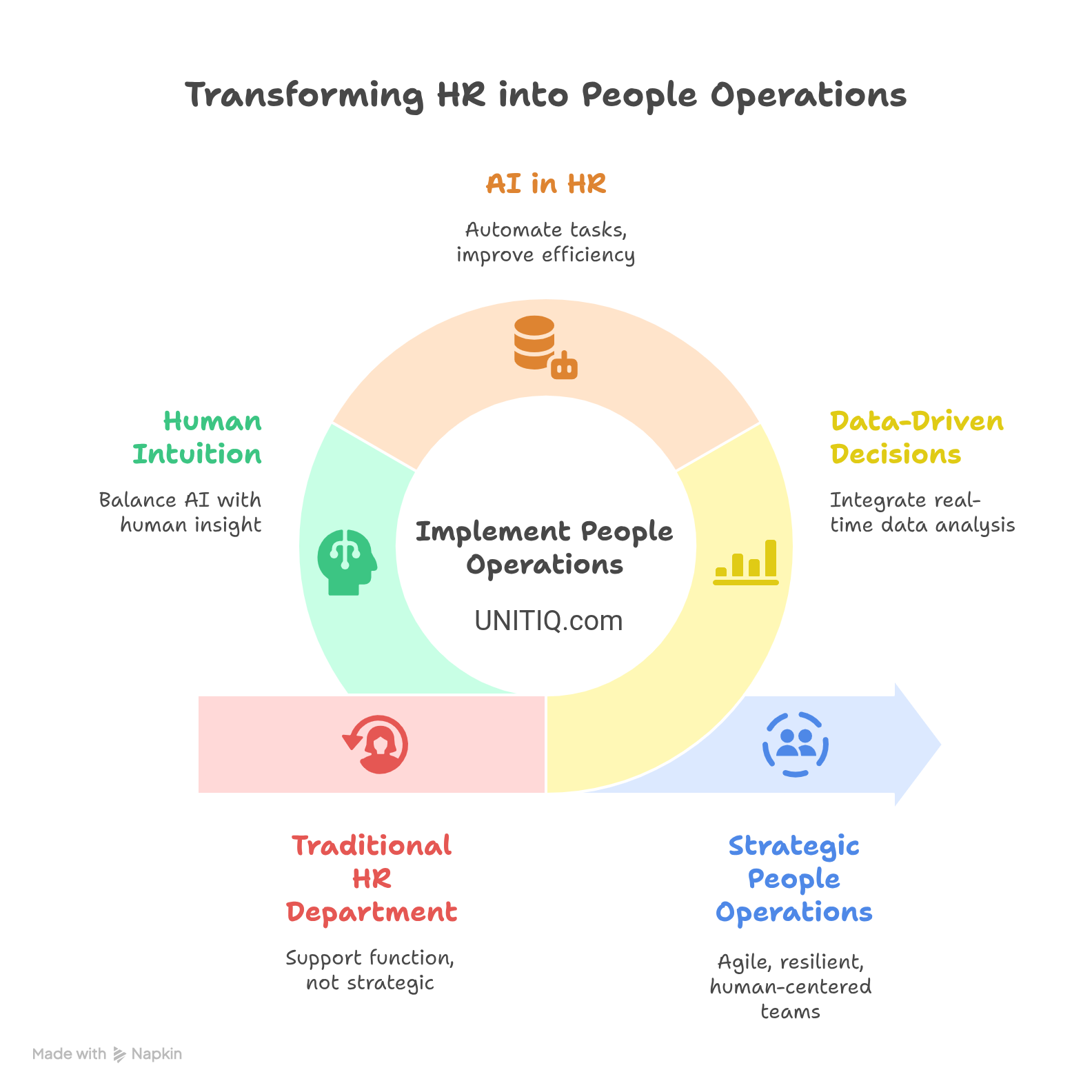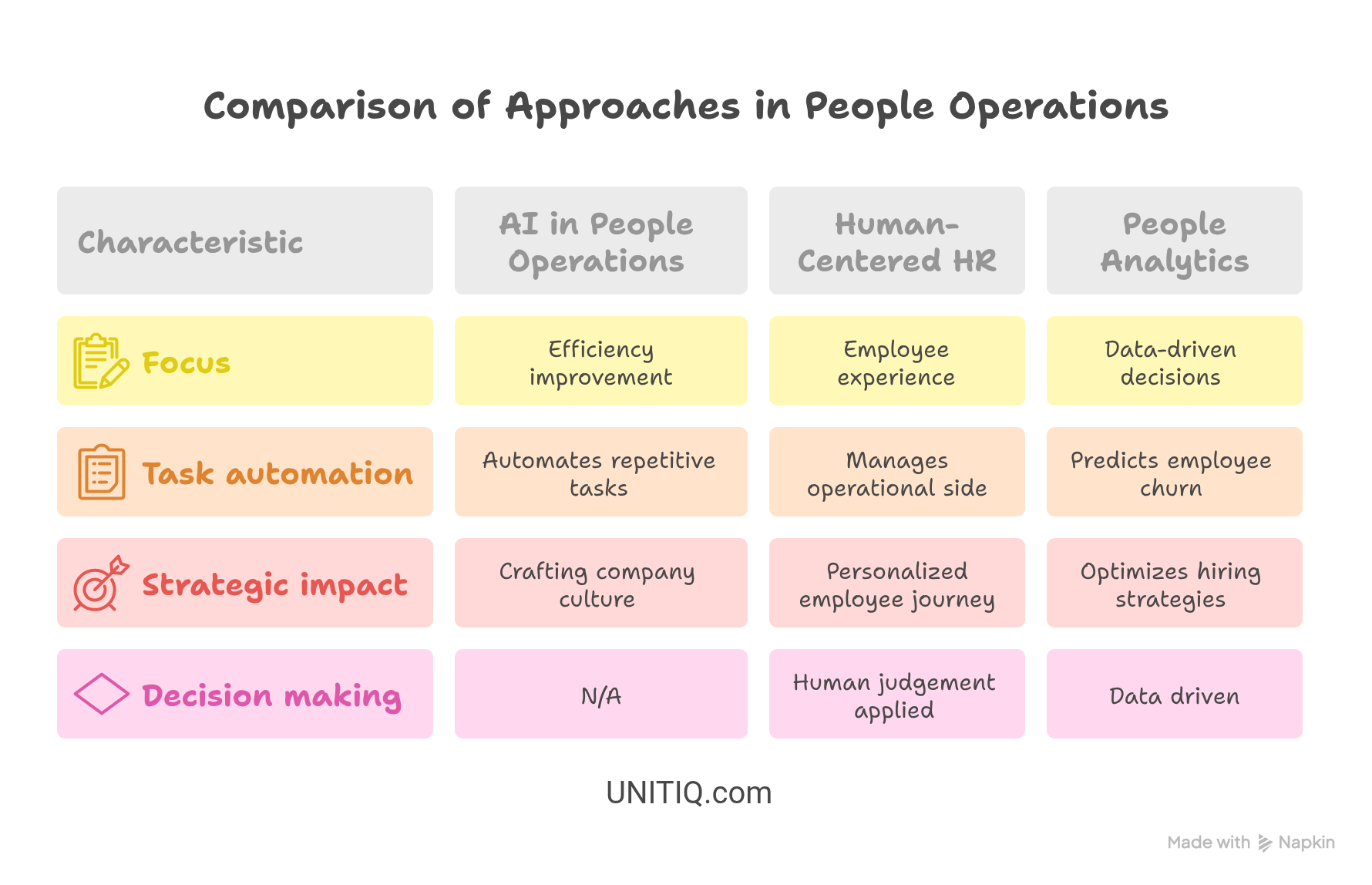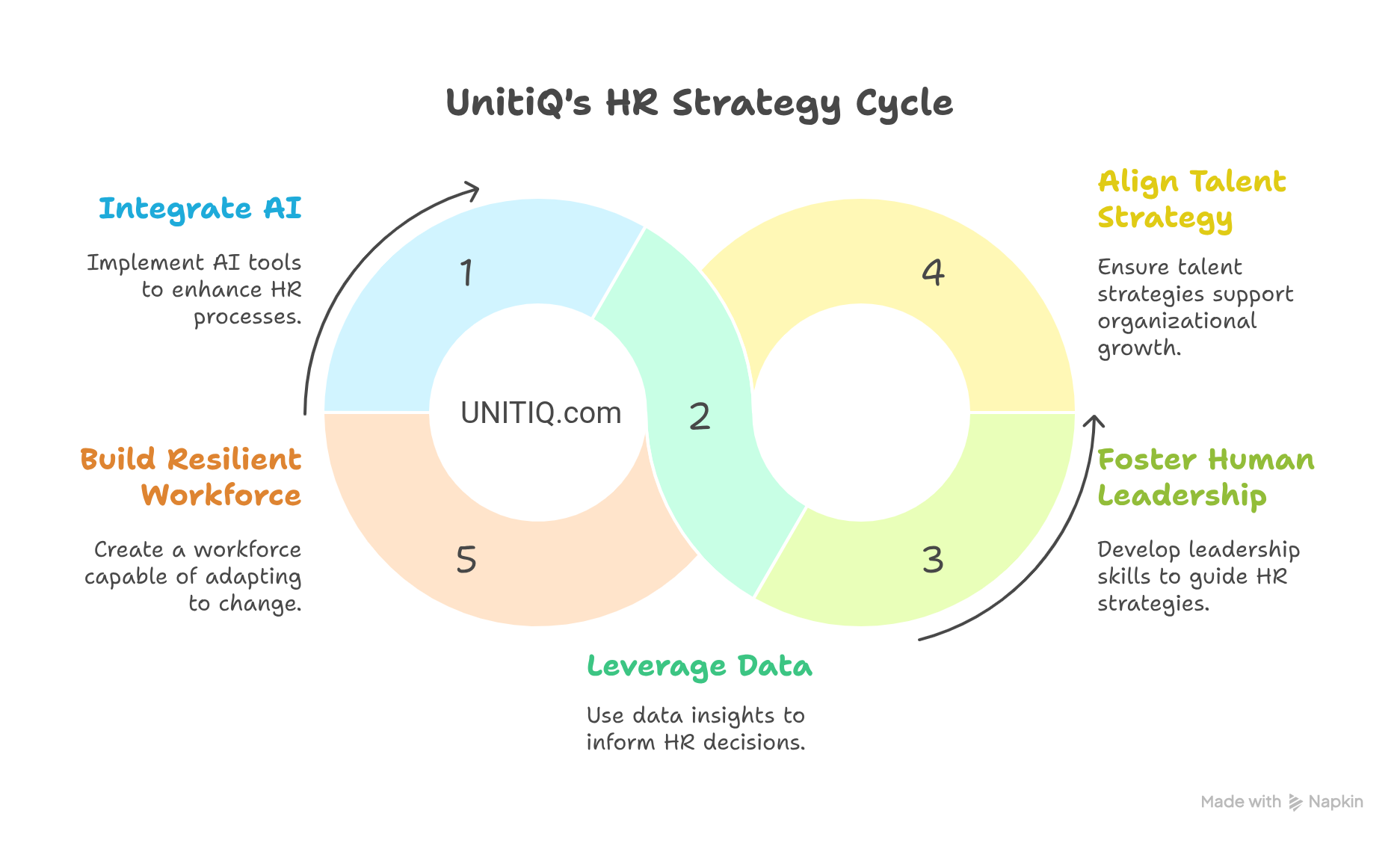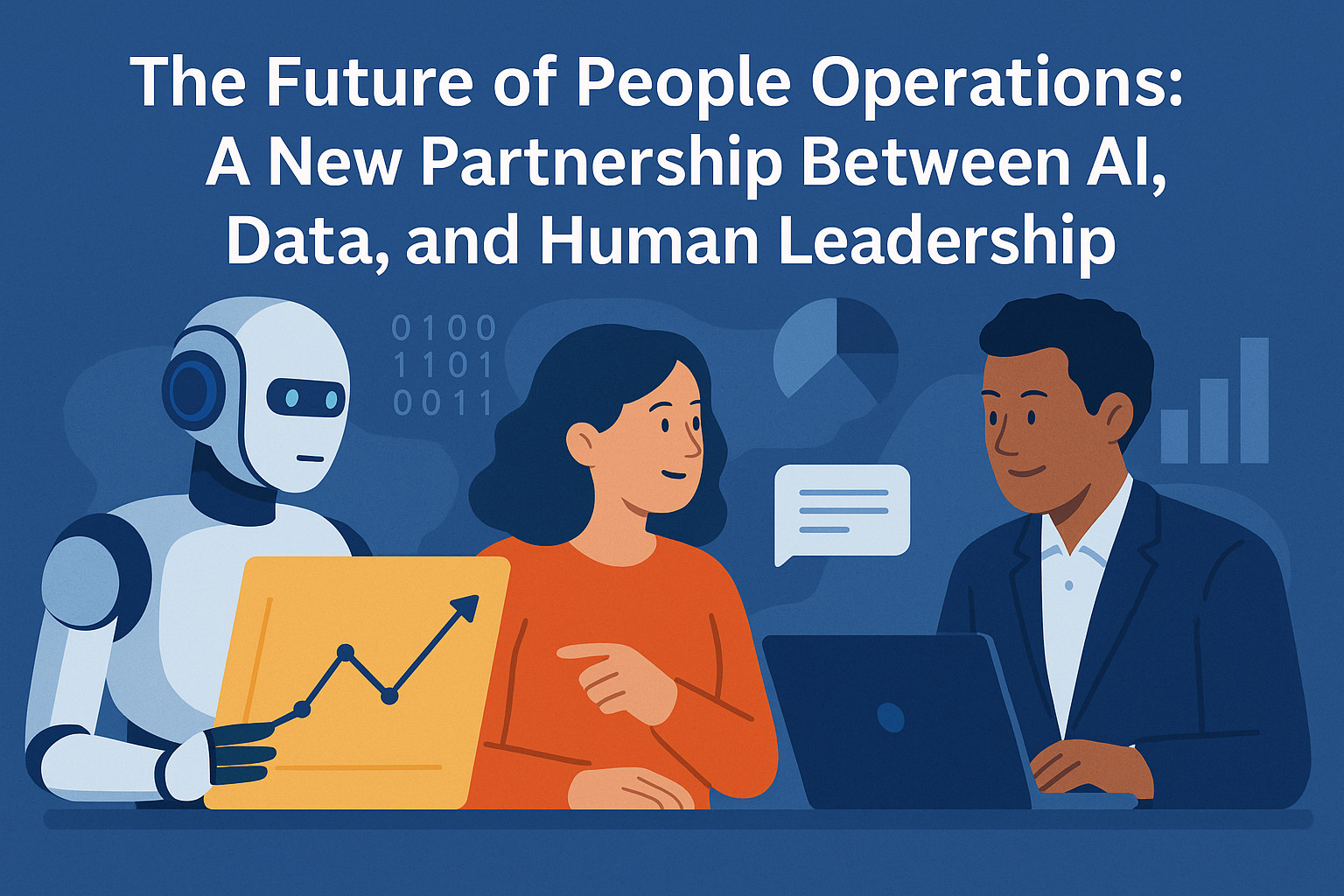The traditional HR department is undergoing a rapid transformation. It’s no longer just a support function but a strategic powerhouse known as People Operations. This shift is being fueled by a new, symbiotic relationship between artificial intelligence, real-time data, and human intuition. For startups, mastering this partnership is the key to building an agile and resilient workforce that can outpace the competition.
This article explores how a new operating model for People Operations is redefining how companies attract, retain, and empower their teams, creating a future that is both more efficient and more human.
Startups that embrace data-driven People Operations and integrate AI in HR decision-making can outpace competitors by building resilient, human-centered teams.

AI in People Operations: How Technology Elevates HR Leaders
A McKinsey study shows that organizations using AI in HR achieve a 20–30% improvement in efficiency of recruitment processes.
AI is fundamentally changing the job of a People Operations professional, not by replacing them, but by elevating their work. By automating repetitive and time-consuming administrative tasks, such as initial resume screening, benefits enrollment, and payroll processing, AI frees up valuable time. This allows people leaders to move beyond transactional duties and dedicate their energy to high-impact, strategic initiatives like crafting a unique company culture, developing leadership, and ensuring the well-being of their team.
Human-Centered HR: Why Empathy Is the Future of People Operations
Paradoxically, the rise of technology in the workplace is making the employee experience more human. With technology managing the operational side of the business, leaders can focus on providing empathy, building relationships, and fostering a sense of belonging. This model is all about using data to identify individual needs and then applying human judgment to create a personalized and meaningful employee journey. It's about empowering people leaders to serve as coaches and mentors, not just administrators.

People Analytics: Using Data to Predict, Retain, and Engage Talent
In the past, HR decisions were often based on intuition. Today, they are driven by data. People analytics tools provide a clear window into the health of an organization, allowing leaders to:
- Predict Churn: Use predictive analytics to identify which employees might be at risk of leaving and intervene before it's too late.
- Optimize Hiring: Analyze data to understand where your best hires come from and refine your recruitment strategies.
- Measure Engagement: Track key metrics to gauge employee satisfaction and identify the root causes of disengagement.
This data-driven approach transforms People Operations from a reactive function into a proactive one, allowing leaders to make informed, strategic decisions that directly impact the business.
According to Deloitte, 71% of companies now see People Analytics as a high priority in their HR strategy.
Gallup research indicates that highly engaged teams show 21% higher profitability.
-
👉 At UnitiQ, we believe the future of HR lies in this partnership between AI, data, and human leadership. If you’re ready to build a resilient, people-centered workforce, explore how UnitiQ can help you align talent strategy with growth.

FAQ
What is People Operations and how is it different from HR?
People Operations is the evolution of HR, shifting from administrative tasks to a strategic function focused on culture, engagement, and workforce resilience.
How is AI changing People Operations?
AI automates repetitive tasks like resume screening and payroll, freeing leaders to focus on strategy, leadership development, and employee well-being.
Why is a human-centered approach critical in the future of HR?
Because while data and AI provide insights, only human leaders can apply empathy, context, and coaching to create meaningful employee experiences.
About Author
Olga Fedoseeva is an award-winning HR executive and people strategist with over 20 years of international experience across EMEA, the US, and APAC. Currently Chief of Staff at Exponential Science and Founder of UnitiQ, she has personally hired more than 1,000 employees and scaled organizations from 30 to 3,000 staff. Recognized as one of the Top HR Women in EV (2021), Olga has led global HR transformation, talent acquisition, and people operations for startups, scale-ups, and multinational enterprises. Her expertise spans the full HR lifecycle—succession planning, DEI, HR tech integration, workforce planning, and executive coaching—helping businesses align people strategies with growth objectives while fostering inclusive, high-performance cultures.
